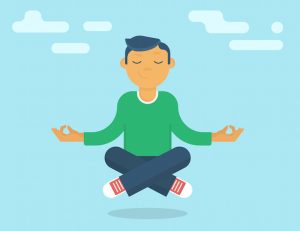 We are currently in the midst of a crisis. COVID-19 now qualifies as a pandemic. The condition is a severe viral respiratory infection that runs the risk of mortality in elderly or immune-compromised individuals. While the lasting impact of the disease on the community is unknown, we do know that we want to boost our immune system to fight off this and any other pathogen it comes across. The following is a list of research-backed recommendations to boost immune function. While strictly abiding by this list does not guarantee that you’ll remain healthy, it certainly puts your body in a better state to fend off disease. Your first line of defense is choosing a healthy lifestyle.
We are currently in the midst of a crisis. COVID-19 now qualifies as a pandemic. The condition is a severe viral respiratory infection that runs the risk of mortality in elderly or immune-compromised individuals. While the lasting impact of the disease on the community is unknown, we do know that we want to boost our immune system to fight off this and any other pathogen it comes across. The following is a list of research-backed recommendations to boost immune function. While strictly abiding by this list does not guarantee that you’ll remain healthy, it certainly puts your body in a better state to fend off disease. Your first line of defense is choosing a healthy lifestyle.
A common theme with the recommendations below is reducing inflammation. Chronic inflammation prevents your body’s immune system from responding as quickly or as effectively when a foreign invader enters. Think about your fire alarm at home. A fire is detected in your house (pathogen spotted), and an alert is sent out for help. Firefighters respond and put out the fire. Now imagine if this alarm is going off all day, every day. The firefighters will show up for the first few weeks to extinguish the fire. But after enough false alarms, they begin to ignore the siren. When there is a fire, the signal still goes off, but there is no response. This example is the effect of chronic inflammation on the immune system.
Aim for at least 8 hours of sleep per night
We overlook rest as a crucial part of health and immune function. Although there are only 24 hours a day, miscellaneous tasks consume most of it. Anything from work, traffic, family, kids, social life, cooking, shopping, cleaning, yard work, and house repairs, to name a few. The idea of dedicating a third of our day to lying in bed is an unacceptable idea for some. However, sleep allows your cells and tissues to repair while also allowing hormones to circulate throughout the body to normalize. Cutting down on sleep will also reduce the production of cytokines, a key defender in the immune system.1
Adults should aim for 7-8 hours of sleep, teenagers 9-10 hours, and children 10+ hours.
Replace processed foods with REAL foods.
EAT REAL FOOD. If you can’t pronounce it, you probably shouldn’t be eating it. Many companies pack chemicals and preservatives in their food. While this may increase the product’s shelf life, it will often raise the sodium content and increase your risk for other conditions.
The best advice I’ve ever heard is that grocery shopping should involve only shopping the “periphery” of the store. This behavior allows you to maximize fresh fruits, vegetables, and lean meats while keeping you away from boxed foods. Consume a wide variety of brightly colored fruits and vegetables. This variety will increase your consumption of vital nutrients like vitamins C and E, beta-carotene, and zinc.
Reduce intake of sugars, refined sugars, and starches.
Sugar, better known as carbohydrates, is essential for the body. It provides energy for everything from muscle movements to brain activity. However, many of us consume too much sugar. High sugar levels are directly linked to various severe conditions, from diabetes and obesity to heart disease and early death.2 High levels of sugar drive up the body’s inflammatory levels. With that “danger siren” constantly wailing, it’s difficult for our defenses to combat an actual intruder when it enters the body. The goal is to limit the intake of these sugars.
We classify sugars into three main categories: simple, refined, and cellulose/fiber. Below are examples of each class:
- Simple Sugars: candy, honey, sports drinks, sodas
- Refined Sugars: flour, breads, pasta, rice
- Cellulose/Fiber: leafy green vegetables, beans, apples
Of the three categories of sugar listed above, Cellulose, better known as fiber, cannot be digested by the human body. This means these vegetables have minimal effect on blood glucose levels and are the ideal form of carbohydrates for consumption. We should attempt to consume simple and refined sugars more sparingly.
Exercise at least 30 minutes per day
The CDC currently recommends 150 minutes of moderate-to-vigorous intensity physical activity per week. If you can’t make time for 150 minutes, some is better than none! A study found that “as little as 15 minutes per day at five days a week of moderate-to-vigorous physical activity reduces mortality by 22%.” 3 Exercise is directly linked to increased immune function. Another study found that 20 minutes of exercise triggers the body to suppress inflammation.5 Reduced inflammation allows the body to recognize and attack foreign invaders more easily.
Sunlight and Vitamin D
Wintertime is deemed the “cold and flu season” due to our time indoors, in close contact with each other. More time inside allows germs to spread easily and quickly. Additionally, northern winters don’t provide much sunlight. If you’re reading this, you likely live in Michigan and are exposed to less sunlight in the winter. Sunshine is an excellent source of vitamin D, which reduces stress levels and increases mental focus. Experts estimate that as much as 42% of the US population is vitamin D deficient.6
Vitamin D is an incredibly important hormone that our body uses in various pathways. Deficiency in vitamin D, among other things, has been linked to increased susceptibility to infection.4 Natural sources of vitamin D include fish and sunlight. In strong sun, exposing the arms and legs for 5-30 minutes between 10 am and 3 pm is usually enough to meet the daily requirements.7. Knock out all three immune-boosting tips in one: go on a 30-minute walk outside in the sun.
Supplementation is also an option. The US Institute of Medicine suggests that an average daily intake of 600-800 IU/day will meet the vitamin D requirements of at least 97.5% of the population.8
Reduce Stresses
Stress increases cortisol levels and directly reduces immune function. Harvard Health has a great article detailing the effect of stress on the immune system and some ways to combat it. They recommend mindfulness meditation, yoga, tai chi, prayer, and guided imagery. Click Here for the full article.
Try putting down the cell phone or laptop. The effect of blue light on the body is a quickly evolving research field. This study found prolonged high-energy blue light can cause dry eyes, cataracts, and hormone imbalance. Melatonin is known as the “sleep hormone.” These hormone levels are lower in the presence of blue light.9 Lower melatonin levels mean the body doesn’t feel tired at bedtime. Individuals who suffer from this will report difficulty falling asleep and staying asleep and frequent bouts of insomnia.
Pick up a book. Learn a new hobby. Spend time with your loved ones. These are far better uses of your time than being engrossed in your phone or computer.
Reducing stress and inflammation is easier said than done in a crisis. Find an accountability partner that will hold you to the list above, as you will keep them, too. Most importantly, have fun! Your immune system boost will
Whether seeking relief from chronic pain or simply aiming for optimal health, your Livonia chiropractor guides you every step of the way. Contact our office to schedule an appointment by Clicking Here or giving us a call today: 734-427-6333
References
- Desedovsky L, et al. The sleep-immune crosstalk in health and disease. Physiol Rev. 2019 Jul 1;99(3):1325-1380.
- Yang Q, et al. Added sugar intake and cardiovascular diseases mortality among US Adults. JAMA Intern Med. 2014;174(4):516-524.
- Hupin D, et al. Even a low-dose of moderate-to-vigorous physical activity reduces mortality by 22% in adults aged >60 years: a systematic review and meta-analysis. British Journal of Sports Medicine. 49: 1262-1267. 2015.
- Dimitrov S, et al. Inflammation and exercise: inhibition of monocytic intracellular TNF production by acute exercise via beta-2-adrenergic activation. Brain, Behavior, and Immunity. 2017;61:60-68.
- Aranow C. Vitamin D and immune system. J Investig Med. 2011 Aug; 59(6): 881-886.
- Forrest KY, Stuhldreher WL. Prevalence and correlates of vitamin D deficiency in US adults. Nutr Res. 2011 Jan;31(1):48-54.
- Heaney RP, et al. Human serum 25-hydroxycholecalciferol response to extended oral dosing with cholecalciferol. Am J Clin Nutr. 2003 Jan;77(1):204-10.
- Ross AC, et al. The 2011 report on dietary reference intakes for calcium and vitamin D from the Institute of Medicine: what clinicians need to know. J Clin Endocrinol Metab. 2011 Jan;96(1):53-8
- Zhao Z, et al. Research progress of the effects and prevention of blue light on eyes. Int J Ophthalmol. 2018; 11(12).




